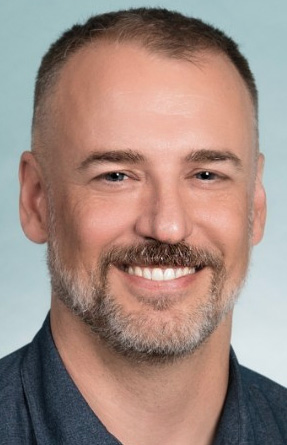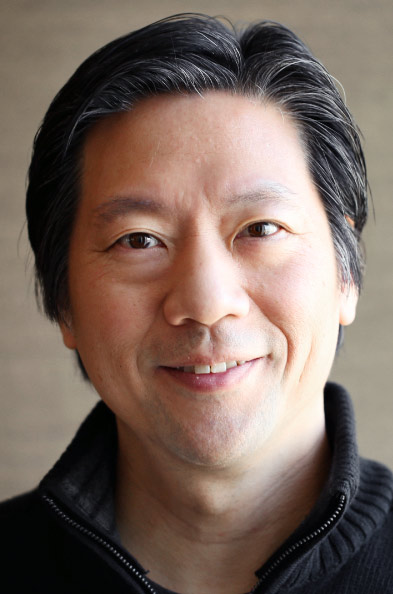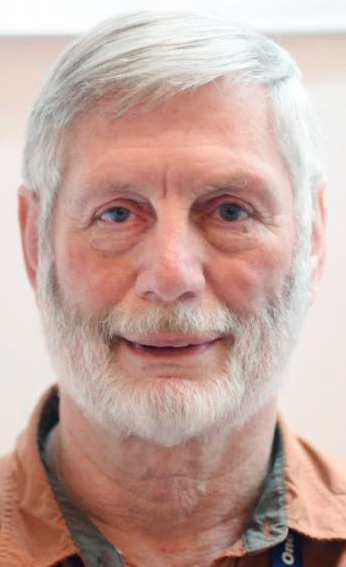/ Featured Blogs
A Reality Check on 5G in Rural America
 FCC Chairman Ajit Pai recently told the crowd at CES that 5G would be a huge benefit to rural America and would help to close the rural broadband divide. I have to imagine he's saying this to keep rural legislators on board to support that FCC's emphasis on promoting 5G. I've thought hard about the topic, and I have a hard time seeing how 5G will make much difference in rural America – particularly with broadband.
FCC Chairman Ajit Pai recently told the crowd at CES that 5G would be a huge benefit to rural America and would help to close the rural broadband divide. I have to imagine he's saying this to keep rural legislators on board to support that FCC's emphasis on promoting 5G. I've thought hard about the topic, and I have a hard time seeing how 5G will make much difference in rural America – particularly with broadband.
- By Doug Dawson
- Comments: 0
- Views: 6,839
Internet Governance and the Universal Declaration of Human Rights, Part 3: Article 6-12
 Internet Governance like all governance needs to be founded in guiding principles from which all policy making is derived. There are no better fundamental principles to guide our policy making than the Universal Declaration of Human Rights, (UDHR). This article is Part 3 of a series exploring the UDHR as a guide and template for the digital governance and digital citizenship. We discuss UDHR Articles 6 through 12 and address topics such as fundamental digital values, cyberlaw, policymaking and the role of tribunals in digital governance.
Internet Governance like all governance needs to be founded in guiding principles from which all policy making is derived. There are no better fundamental principles to guide our policy making than the Universal Declaration of Human Rights, (UDHR). This article is Part 3 of a series exploring the UDHR as a guide and template for the digital governance and digital citizenship. We discuss UDHR Articles 6 through 12 and address topics such as fundamental digital values, cyberlaw, policymaking and the role of tribunals in digital governance.
- By Klaus Stoll
- Comments: 0
- Views: 10,808
Huawei Now One of China’s Largest Software Companies
 The latest report from China's Ministry of Industry and Information Technology (MIIT) shows Huawei at the top of the list of 100 largest software companies in China. On reflection, that's not surprising. Half of Huawei's business is now phones, where chief rival Apple has long considered itself a software company. The great achievement of Huawei's phone division was to pull ahead of everyone in the quality of picture-taking. The hardware can be matched; Huawei's advantage comes from software.
The latest report from China's Ministry of Industry and Information Technology (MIIT) shows Huawei at the top of the list of 100 largest software companies in China. On reflection, that's not surprising. Half of Huawei's business is now phones, where chief rival Apple has long considered itself a software company. The great achievement of Huawei's phone division was to pull ahead of everyone in the quality of picture-taking. The hardware can be matched; Huawei's advantage comes from software.
- By Dave Burstein
- Comments: 1
- Views: 5,731
.ORG Will Thrive Under Ethos Capital
 I've been proud to serve Public Interest Registry (PIR) since 2017 and play a part in helping the organization support those with a mission to do good. I recently joined every one of my fellow board members in reaching the unanimous decision to approve the sale of PIR, as I believe PIR's mission will best be served by the sale and .ORG's long-term future will be stronger under Ethos Capital ownership.
I've been proud to serve Public Interest Registry (PIR) since 2017 and play a part in helping the organization support those with a mission to do good. I recently joined every one of my fellow board members in reaching the unanimous decision to approve the sale of PIR, as I believe PIR's mission will best be served by the sale and .ORG's long-term future will be stronger under Ethos Capital ownership.
- By Jeff Bedser
- Comments: 0
- Views: 6,732
Why Domain Name Security Matters Most?
 In my recent CircleID post, DNS, Domain Names, and Certificates: The Missing Links in Most Cybersecurity Risk Postures, I highlighted the importance of applying multiple layers of defense to secure these business-critical assets. Last Friday, Brian Krebs, the world-renowned cybersecurity journalist, reiterated the criticality of domain name security because the domain name "e-hawk.net" was stolen from the rightful owner using social engineering tactics targeting its domain name registrar.
In my recent CircleID post, DNS, Domain Names, and Certificates: The Missing Links in Most Cybersecurity Risk Postures, I highlighted the importance of applying multiple layers of defense to secure these business-critical assets. Last Friday, Brian Krebs, the world-renowned cybersecurity journalist, reiterated the criticality of domain name security because the domain name "e-hawk.net" was stolen from the rightful owner using social engineering tactics targeting its domain name registrar.
- By Vincent D'Angelo
- Comments: 0
- Views: 10,091
China on Its Way to Becoming a Formidable Satellite Internet Service Competitor
 In a study of the Internet in China in the late 1990s, my colleagues and I observed that "China has been able to execute plans effectively by allocating resources to competing, government-owned enterprises," and Kai-Fu Lee shows that they have pursued a similar strategy with respect to AI. Now they are doing the same with low-Earth orbit (LEO) broadband satellite constellations.
In a study of the Internet in China in the late 1990s, my colleagues and I observed that "China has been able to execute plans effectively by allocating resources to competing, government-owned enterprises," and Kai-Fu Lee shows that they have pursued a similar strategy with respect to AI. Now they are doing the same with low-Earth orbit (LEO) broadband satellite constellations.
- By Larry Press
- Comments: 0
- Views: 13,381
Setting a Higher Bar: Our .gay Commitment Is an Industry-First
 Eight years ago, we made the decision to apply for ".gay" with encouragement from Clyde, my gay brother-in-law, among other passionate members of my family. Although we lost him recently, his memory has only increased our determination to see it through. I know Clyde would be proud of our vision for .gay, and all of the planning and community engagement that has gone into making sure we get this right.
Eight years ago, we made the decision to apply for ".gay" with encouragement from Clyde, my gay brother-in-law, among other passionate members of my family. Although we lost him recently, his memory has only increased our determination to see it through. I know Clyde would be proud of our vision for .gay, and all of the planning and community engagement that has gone into making sure we get this right.
- By Ray King
- Comments: 0
- Views: 8,887
Doing More to Address Child Sexual Abuse Materials Online
 For all of us at Public Interest Registry, working to remove child sexual abuse content from the Internet isn't just a part of our work; it's our moral duty. As stewards of the .ORG community, addressing the problem head on is the only option compatible with our values. Talking about Child Sexual Abuse Materials (CSAM) is challenging and uncomfortable. It's also far too important, and prevalent, of a problem to ignore. While it's impossible to know exact numbers, online CSAM is a major, rapidly growing crisis.
For all of us at Public Interest Registry, working to remove child sexual abuse content from the Internet isn't just a part of our work; it's our moral duty. As stewards of the .ORG community, addressing the problem head on is the only option compatible with our values. Talking about Child Sexual Abuse Materials (CSAM) is challenging and uncomfortable. It's also far too important, and prevalent, of a problem to ignore. While it's impossible to know exact numbers, online CSAM is a major, rapidly growing crisis.
- By Brian Cimbolic
- Comments: 0
- Views: 7,359
Call for Participation – ICANN DNSSEC and Security Workshop at ICANN67, Cancun, Mexico
 The ICANN Security and Stability Advisory Committee (SSAC) and the Internet Society Deploy360 Programme are planning a DNSSEC and Security Workshop during the ICANN67 meeting held from 07-12 March 2020 in Cancun, Mexico. The original DNSSEC Workshop has been a part of ICANN meetings for many years and has provided a forum for both experienced and new people to meet, present, and discuss current and future DNSSEC deployments.
The ICANN Security and Stability Advisory Committee (SSAC) and the Internet Society Deploy360 Programme are planning a DNSSEC and Security Workshop during the ICANN67 meeting held from 07-12 March 2020 in Cancun, Mexico. The original DNSSEC Workshop has been a part of ICANN meetings for many years and has provided a forum for both experienced and new people to meet, present, and discuss current and future DNSSEC deployments.
- By Dan York
- Comments: 0
- Views: 6,846
What Should the ICANN Board Do About the .org Registry Sale?
 Two and a half months ago, shortly after the ICANN66 meetings in Montreal, the ICANN stakeholder community was jolted by the announcement that the Internet Society (ISOC) had entered into an agreement to sell the wholly owned PIR non-profit that holds the .org registry contract. The sale was to be for $1.13B USD to the hastily assembled venture capital company Ethos Capital. The sale was presented as a done deal awaiting approval by the ICANN Board.
Two and a half months ago, shortly after the ICANN66 meetings in Montreal, the ICANN stakeholder community was jolted by the announcement that the Internet Society (ISOC) had entered into an agreement to sell the wholly owned PIR non-profit that holds the .org registry contract. The sale was to be for $1.13B USD to the hastily assembled venture capital company Ethos Capital. The sale was presented as a done deal awaiting approval by the ICANN Board.
- By Sam Lanfranco
- Comments: 0
- Views: 5,695